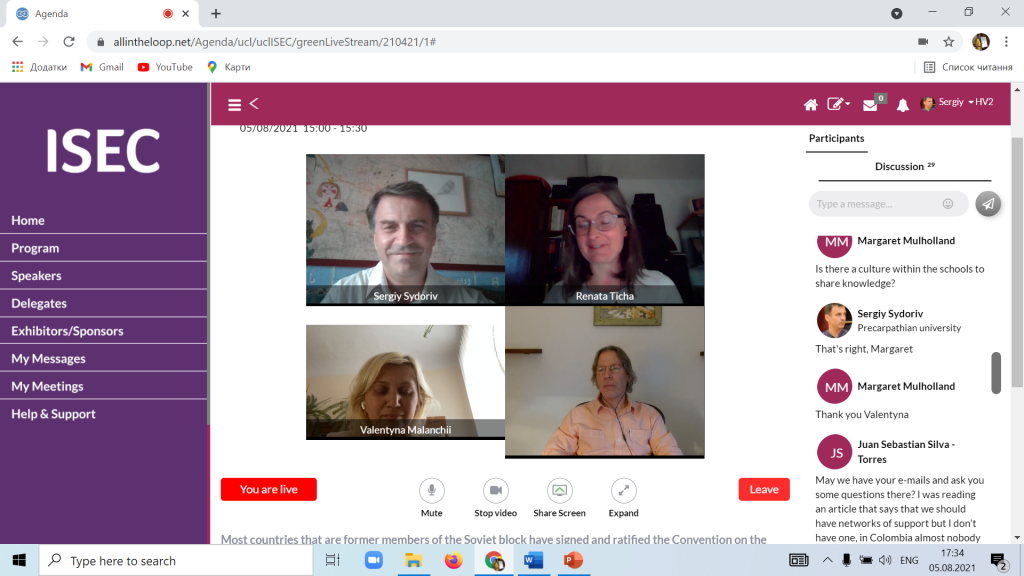Sergiy Sydoriv from Ivano-Frankivsk college alongside with project participants from the USA and Ukraine took part in Inclusive and Supportive Education Conference (ISEC 2021). The project’s initiation, activities it has sponsored, effects of those efforts, and what lies ahead were described in “Inclusivna Osvita: Pursuing Inclusive Education in Ukraine“, the cultural perspectives on disability developed in Soviet times that still hold sway over the manner in which persons with disabilities of all ages are viewed and the societal conditions that have made these attitudes and beliefs difficult to change were discussed and comparison was made between the current situation for individuals with disabilities in Post-Soviet Countries and the US, highlighting the differences and similarities, including the prevalence and quality of institutions, lack of adequate employment opportunities, and the limited preparation teachers receive to instruct students with disabilities within inclusive settings in Challenges and Opportunities for People with Disabilities in Post-Soviet Countries, the results of the first surveillance study on employment and the community participation of persons with disabilities undertaken in Bhutan with a focus on both the experiences of young adults with disabilities and the attitudes and beliefs of potential employers were presented in Supporting the Gross National Happiness and Inclusion of People with Disabilities in Bhutan: Creating Opportunities Employment and Community Engagement.
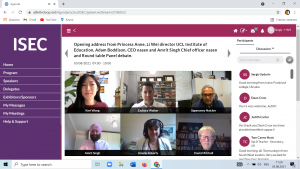 The theme of ISEC 2021 is Closing the Research to Practice Gap. During the conference the international speakers and delegates explored new perspectives on how to translate academic enquiry into practical, workable strategies with which educators can support the lives of children and young people living with special educational needs and disabilities (SEND).
The theme of ISEC 2021 is Closing the Research to Practice Gap. During the conference the international speakers and delegates explored new perspectives on how to translate academic enquiry into practical, workable strategies with which educators can support the lives of children and young people living with special educational needs and disabilities (SEND).
UCL Centre for Inclusive Education and the National Association for Special Educational Needs (nasen) hosted the Inclusive and Supportive Education Conference (ISEC) from Tuesday 3rd to Thursday 5th August 2021. ISEC 2021 was delivered fully online.
The aim was to explore the interrelationship between researchers, educational practitioners and parents examining the unique role each has in applying theory to practice and creating environments for a lasting and positive change.
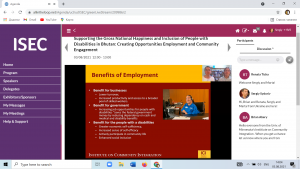 Conference themes
Conference themes
To focus conversations over the three days of the conference, six sub themes for investigation and exploration by delegates and presenters alike hve been created.
Education in Times of Uncertainty: What Have We Learned?
The events of the last year have dramatically altered education as a whole. The impact of COVID-19 is likely to be long-lasting. How do we include all students when going online? How do policies have to change to accommodate for our most vulnerable? What did we do well? What do we need to plan for next? This theme will be about what we learned and what we need to consider moving forward in a new world of education. We welcome research on the impact on students, schools, teachers, parents and lecturers.
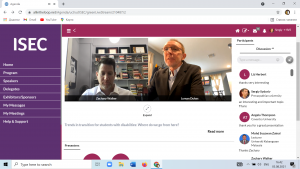 Research to Practice: Knowledge Exchange
Research to Practice: Knowledge Exchange
What is knowledge exchange? Why is it important? How can universities and schools work together to close the research to practice gap? This strand will explore case studies and examples of programmes and partnerships that highlight best practices in knowledge exchange.
Research to Practice: Innovative Practices
Do you know of innovative practices happening in schools, homes, workplaces or communities that help individuals with disabilities? Please share your work here whether it is still in development or has proven to be successful!
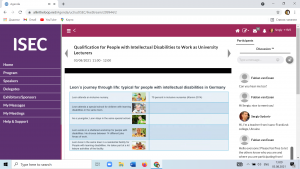 Research to Practice: Inclusion as Social Justice
Research to Practice: Inclusion as Social Justice
Inclusion is not only a disability issue; it is a social justice issue. This strand will define social justice and inclusion as well as focus on solutions for creating more inclusive environments. What are the commonalities between the quest for inclusive environments in all areas
Research to Practice: Parents as Partners
Parent-school partnerships are a natural part of a child’s success, especially for those with disabilities. How do we ensure parents become an integral part of educating children and are empowered to act according to their rights? What do effective parent-school partnerships look like from research to practice?
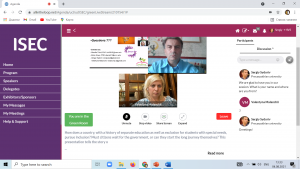 Research to Practice: Lifelong Inclusion
Research to Practice: Lifelong Inclusion
We will explore transition practices from school to school, school to community, school to workplace, and school to independent living. Are there evidence-based practices that promote successful transition to further education, work, and community life? Are there practices being employed in other similar disciplines that merit examination and subsequent application? How can inclusion be promoted in educational settings and into life as an adult?
The youngest project participant was very active too, making her first steps in international inclusion movement.

